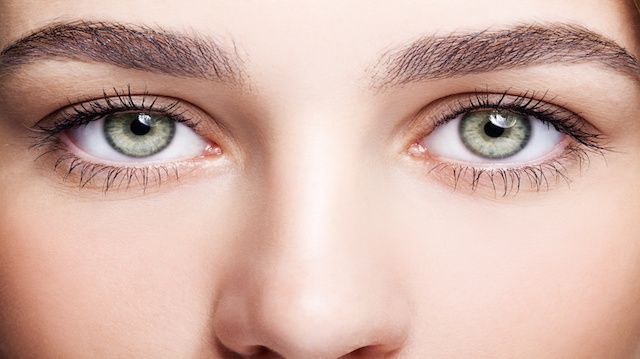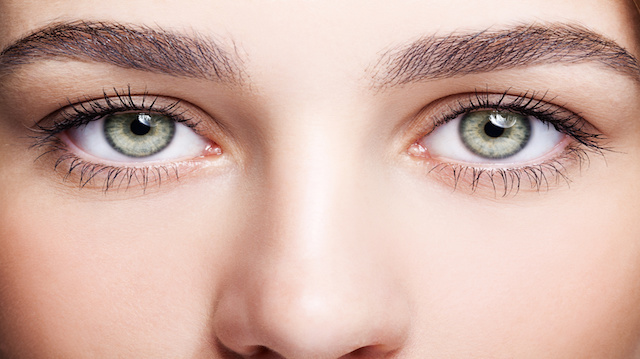
Although most people attribute poor eyesight to genetic causes, new research suggests that there may be more to this story. In fact, a recent study suggests that humans are losing their vision faster than ever before, a trend that genetics alone cannot account for.
The study, published in the journal Ophthalmology analyzed 145 eye-related studies involving more than 2.1 million participants from all over the globe. Based on the analysis, the researchers predict that half of the world’s population, or nearly five billion people, will be myopic (near-sighted) by the year 2050.
And that’s not all. Of these people, almost one billion will be myopic to the degree that they are at risk for more serious eye problems, including glaucoma, cataracts, macular degeneration, and retinal detachment. This means myopia may become one of the leading causes of permanent blindness in the world.
So why is this happening? The researchers involved with the study cite a combination of two recent lifestyle changes: decreased time outdoors and increased “near-work activities.” Basically, people are spending more time inside, staring at things not so far away from them — like screens — and less time outdoors, where people typically gaze at objects that are farther away from them.
This theory seems to make sense, as the incidence of nearsightedness actually varies from culture to culture, with high-income countries — where people spend the most time on the computer — actually having the highest rates of the condition. The authors of the paper noted that this trend will likely spread to other countries and cultures as urbanization and technological advancements reach new communities around the world.
The “outdoors” theory
Other researchers have suggested that screens are not the primary issue, and that they are harmful only insofar as they keep children inside, and away from the bright, natural light that eyes so desperately need to be healthy. In other words, these researchers think that exposure to bright, outdoor light as a child actually prevents myopia because it has some sort of long-term, protective effect on the eyes.
Ian Morgan, an Australian myopia researcher, actually recommends that children spend around three hours per day under light levels of at least 10,000 lux to prevent myopia. This is about the level experienced by someone wearing sunglasses while sitting in the shade on a very bright day.
Whatever the causes may be, it’s becoming more and more clear that vision problems are not purely a product of genetics. Environmental factors and how we use our eyes might be just as important as our DNA.
There are still a lot of unanswered questions regarding eyesight health and protection. However, there are a few things that we know work to protect eyesight.
Eat for eye health. A diet that incorporates a wide variety of vegetables, including dark leafy greens like spinach, vegetables rich in beta-carotene like sweet potatoes and carrots, as well as foods high in omega-3 fatty acid like wild-caught salmon, can play a part in preventing many age-related eye diseases. Some research suggests that coffee may also be an effective eye-protecting beverage.
 Exercise your eyes. According to a paper published by Harvard University in 2010, “Practiced faithfully, eye exercises may actually help delay the need for glasses or contacts in some people.” Here’s how to get started.
Exercise your eyes. According to a paper published by Harvard University in 2010, “Practiced faithfully, eye exercises may actually help delay the need for glasses or contacts in some people.” Here’s how to get started.
Take breaks from your screen. Whenever you are using a computer, tablet, or smartphone for an extended period of time, remember to take a break every 20 minutes. Use this time to look outside and focus on a point in the distance, at least 20 feet away, or simply to rest your eyes.
Blink more. Looking at a screen for an extended period of time causes us to blink less. Not blinking can make our eyes red and dry, so try to remember to blink whenever you’re looking at a screen of some kind.
Our eyes are just like any other part of our body. Some things we do keep them healthy, and other things we do are harmful, and cause them to age faster than necessary. Let’s try to do more things in the “healthy” category!
—Teresa Manring
Teresa is a freelance writer and yoga instructor currently studying in Sri Lanka. She has over 600 hours of yoga teacher training in Hatha Yoga, Vinyasa Flow, and Yoga Therapy. She believes sleep, self-love, and the breath are the keys to health and joy.
Sources:
http://www.aaojournal.org/article/S0161-6420(16)00025-7/fulltext
http://www.nature.com/news/the-myopia-boom-1.17120
http://www.wired.com/2016/02/silent-epidemic-myopia
http://www.webmd.com/eye-health/good-eyesight

